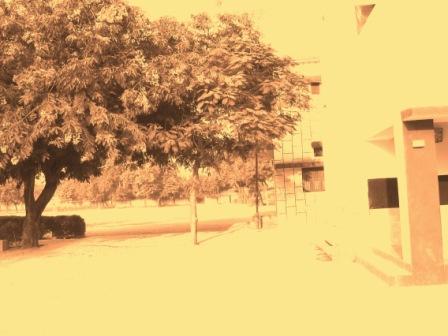Teri umeed tera intezaar jab se hai...
By Faiz Ahmed Faiz
[Interpretive Translation by Siyaah]
Teri umeed tera intezaar jab se hai,
Na shab ko din se shikaayat, na din ko shab se hai...
This hope, this wait for you - that I now have,
The night and the day no longer complain about each other...[1]
Kisi ka dard ho karte hain tere naam raqam,
Gilaa hai jo bhi kisi se tere sabab se hai...
The pain from one and all - in your name I register,
You are the reason for all my complaints about any other...[2]
Huwaa hai jab se dil-e-naa'saboor be-qaaboo,
Kalaam tujh se nazar ko bare adab se hai...
Ever since this impatient heart has turned unrestrained,
This gaze addresses you with a new respect altogether...[3]
Agar sharar hai to bharke, jo phool hai to khile,
Tarah tarah ki talab tere rang-e-lab se hai...
That which is a spark - turns wild, the blossom - blooms,
Your lips' color arouses desires of one kind or another...[4]
Kahaan gaye shab-e-furqat ke jaagne-waale,
Sitaara-e-sahari hum kalaam kab se hai...
Where are those gone - who would stay awake through the night of separation?
The morning star alone converses - it seems forever...[5]
----
Translator's Notes:
Finished a translation after a long time - one that had been growing at the back of my mind for long. My favorite in terms of the uniqueness of Faiz's idea here is couplet [2]. The last couplet was the most difficult to translate - the last line has to be written in a way that it can capture two meanings: the morning star as the only conversation companion left for the poet; but also perhaps the morning star conversing with none but itself (in this sense the poet may identify with the star).
Nusrat Fateh Ali Khan has sung this is a way that I really like- lending it a strange and very slight melancholy quality - that is always there in every line but never goes out of control...as if one is resigned to this fate; the singing is an interpretation in itself.
A different style - surprisingly lesser known - is enjoyable in the older rendition by Ustad Amaanat Ali Khan.
Thursday, December 04, 2014
Subscribe to:
Posts (Atom)





